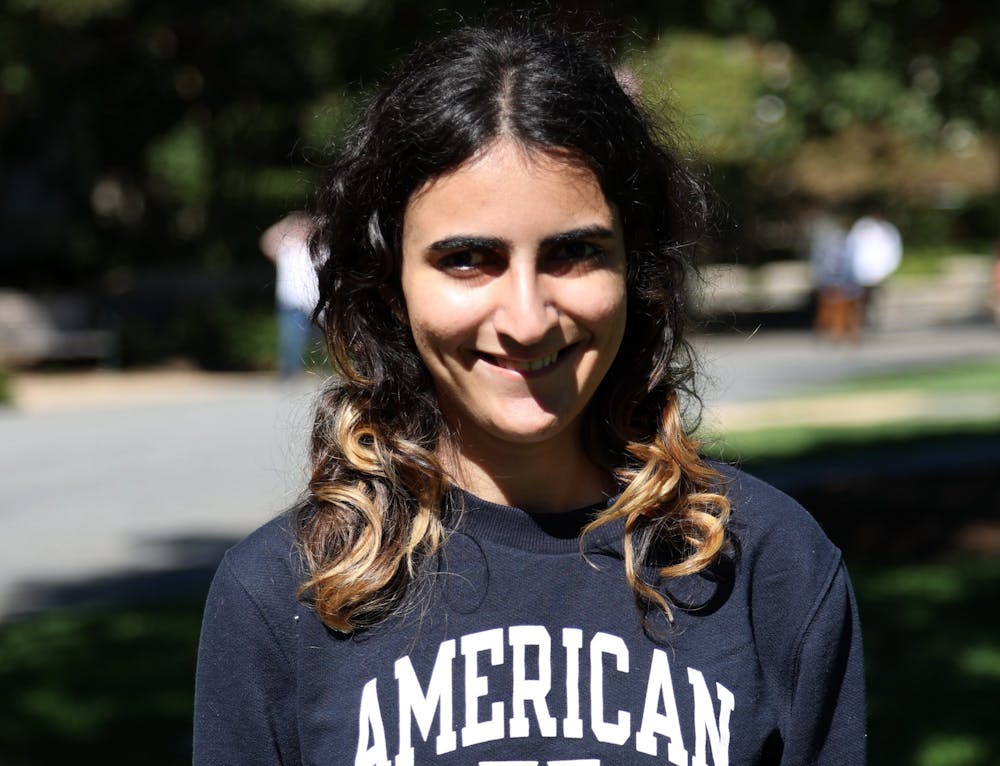From the Newsstands: This story appeared in our December 2021 print edition. You can find the digital version here.
The American University community is slowly transitioning back to pre-pandemic norms. This is exciting news to most students, but not all. Changes during the coronavirus pandemic were made based on public health concerns, but it is important to recognize that those changes directly benefited the disabled community. While AU is offering some online options, the majority of students are again required to attend in-person classes and events which is harmful to some members of the disabled community.
Information released by the American Psychological Association on Sept. 1 indicates that there are benefits of online learning for all people. Different populations of students found new ways to engage with online learning that cannot be implemented in the classroom. Key takeaways are the prioritization of mental health, increased motivation, better understanding of needs when teaching children, decreased bullying and of course more opportunities for disabled students. While this article is mainly geared toward K-12 students, many of these issues can also apply to college students. Most frequently, college students struggle with mental health, lack of motivation and disability-related accommodations.
The University currently offers few virtual options — live and asynchronous — according to Eagle Service. I am a public health major and while classes like HLTH-245: Multicultural Health and HLTH-205: Introduction to Nutrition have asynchronous options, classes like HLTH-110: Introduction to Public Health and HLTH-240: Introduction to Health Promotion do not. This is primarily a problem because HLTH-110 and HLTH-240 are requirements for the major.
I had to commute to Spring Valley for HLTH-110 this semester and found it incredibly frustrating. As someone who is significantly vision impaired, it is hard for me to catch the bus or take an Uber by myself. I was forced to spend money on Ubers and pay a Personal Care Assistant (PCA) to get to class. While this may not sound all that bad, it is quite financially straining on top of my tuition and takes up a good amount of time. After reading the syllabus for this specific course, I found out that students are able to log onto an alternative Zoom format for symptoms of COVID-19, other illness or essential caretaker responsibilities such as looking after sick children or family members. These accommodations do not take into account the struggles that disabled students like myself face.
It is important we have people looking out for gaps like this one that exclude the needs of disabled individuals. Accommodations such as seeing the board and walking to class are made possible for me through technology, as is the case for many other students. Professors are extremely aware of COVID-19 related issues because it directly impacts all of society, but disabilities are not seen as an impending problem.
While my professor was understanding in this case and able to address my concerns and accommodate me, this is not the case for many students. Students should not have to rely on the chance that they receive an especially understanding professor.
Arizona State University is one of a few larger universities offering virtual options, even before COVID-19. There are many options to choose from including freshman, transfer and graduate degrees. It is most definitely possible for AU to make their programs accessible online, so that many people including the disabled community can have degrees from the nationally-ranked university of their choice, ours being AU.
If an online option for all AU classes is offered, disabled students will be able to get their needs better met. While this would be convenient for all students, it is especially important for the University’s disabled population. The pandemic may be coming to a slow stop, but accessibility is not something that should be trending downward as well.





